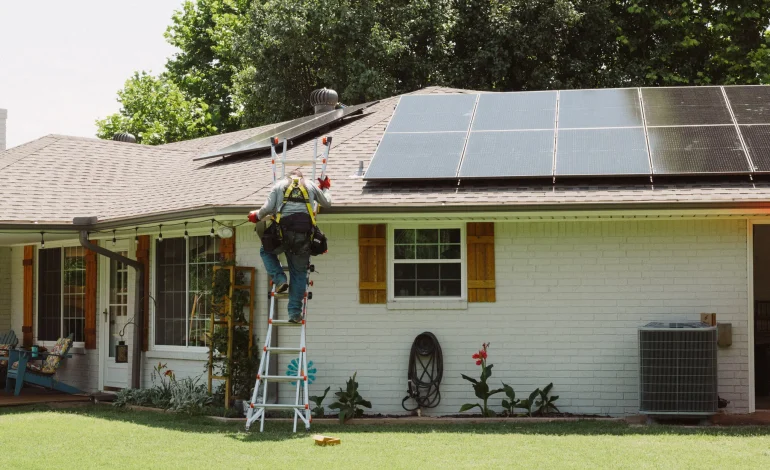Proposed GOP Tax Changes Could Disrupt Rooftop Solar Industry

Over the past two decades, federal tax incentives have helped rooftop solar grow from a niche market into a widespread feature of American homes, the New York Times reports.
Today, more than five million US households have solar panels on their roofs, cutting their electricity bills and contributing to cleaner energy generation. But recent legislation from House Republicans could significantly alter that trajectory.
A domestic policy bill passed by the House last month proposes the elimination of several clean energy tax breaks that have been critical to the growth of residential solar. If enacted, the bill would end the residential solar tax credit by the end of 2025 and immediately disqualify solar leasing companies from claiming the investment tax credit. Industry analysts warn the change could result in a sharp decline in installations, with some projections estimating a drop of up to 85% in demand by 2030.
“This sets us back,” said Ben Airth, policy director at Freedom Forever, a major residential solar installer. “We remember when solar was only for the wealthy or the deeply committed. We’ve spent decades making it mainstream.”
Tax incentives, particularly those enhanced under the 2022 Inflation Reduction Act, have allowed homeowners to claim up to 30% of their solar system costs, making the technology more accessible. They also enabled solar leasing companies to expand offerings to households unable to afford the upfront costs of solar systems. Today, over half of new rooftop solar systems are financed through leasing.
The House bill, however, would not only end those credits but also include broad restrictions on solar components sourced from China. Industry leaders argue that such provisions could make it difficult, if not impossible, to qualify for remaining tax benefits—further hampering solar adoption.
“Catastrophic is a fair way to describe the industry impact,” said Gregg Felton, CEO of Altus Power.
The solar sector currently supports approximately 300,000 jobs and has seen increasing manufacturing investment in the US, partly due to incentives for using domestic components. If subsidies disappear, companies may revert to cheaper foreign components, potentially reversing recent progress in local manufacturing.
In response to the proposed changes, solar industry representatives have urged lawmakers to consider a gradual phase-out of the credits rather than an abrupt halt. They argue that such a shift would provide time to lower installation costs and improve efficiencies, particularly in areas like permitting and financing.
Opponents of renewable energy subsidies, including some House Republicans, argue that government support distorts markets and weakens the national energy grid.
“Those God forsaken subsidies are killing our energy, killing our grid,” said Representative Chip Roy of Texas.
Beyond federal policy, the rooftop solar industry is also facing headwinds at the state level. Some utilities and regulators argue that rooftop solar customers shift grid maintenance costs onto others, prompting moves to reduce compensation for excess solar production. California, the nation’s largest rooftop solar market, has already implemented such changes, resulting in an 85% drop in new installations and widespread strain across the supply chain.
Compounding these challenges are high interest rates and tariffs on solar components from China, which have raised installation costs further. Several solar companies, including Solar Mosaic and Sunnova Energy, have recently filed for bankruptcy amid tightening financial conditions.
Despite the uncertainty, some analysts believe that rooftop solar could eventually recover. If electricity prices continue to rise, the economics of solar may improve even without subsidies. But most agree the transition period will be marked by layoffs, business closures, and decreased consumer adoption.
“We’re not expecting residential solar to go away,” said Zoë Gaston of energy research firm Wood MacKenzie. “But it will be smaller.”









The latest news in your social feeds
Subscribe to our social media platforms to stay tuned